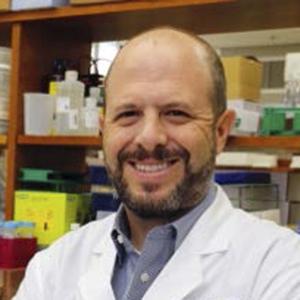Reaching out to underserved & minority patients with hematological diseases in the southeastern US

Michael Savona
MDVanderbilt University Medical Center
Project Term: April 1, 2021 - March 31, 2026
Vanderbilt-Ingram Cancer Center (VICC) is the only NCI designated cancer center that serves both adult and pediatric populations in TN, one of the highest cancer-mortality states in the country. In fact, TN rural dwellers encompass about 30-50% of the states’ population, many with lower per-capita income and high school graduation rates. Influencing cancer care by facilitating underserved and minority populations to access therapeutic clinical trials as well as those focused on screening and prevention strategies remains a cornerstone objective. The Vanderbilt Health Affiliated Network (VHAN) serves as the largest provider for an organized network of hospitals, clinics, and health systems across TN. This network encompasses 12 health systems and 61 hospitals. Within VHAN, the VICC has had a formal affiliation with Baptist Memorial Healthcare Corporation (BMHCC) since 2012. BMHCC is affiliated with 22 hospitals and provides care for 8000 new cancer patients (pts) annually covering 111 counties totaling 4.3 million people. This includes 44% of the 252 counties and parishes in the Delta Regional Authority, congressionally acknowledged as the most indigent population in the US. The primary objective of the VICC community center affiliation with BMHCC is to enhance the regional level of cancer care and to advance cancer research efforts. VICC has provided guidance on a regular basis to assist BMHCC in the establishment and implementation of the Minority and Underserved National Cancer Institute Community Oncology Research Program (NCORP) grant as a successful and sustainable program. BMHCC has become amongst the top recruitment sites for NCORP, with steady growth in the proportion of rural pts seen across the health system. VICC continues to be a resource for BMHCC on providing consultations, training, and best practices for specialized services such as clinical research, radiation oncology, cancer screening, stem cell transplantation and community engagement.
Vanderbilt-Ingram Cancer Center (VICC) is the only NCI designated cancer center that serves both adult and pediatric populations in TN, one of the highest cancer-mortality states in the country. In fact, TN rural dwellers encompass about 30-50% of the states’ population, many with lower per-capita income and high school graduation rates. Influencing cancer care by facilitating underserved and minority populations to access therapeutic clinical trials as well as those focused on screening and prevention strategies remains a cornerstone objective. The Vanderbilt Health Affiliated Network (VHAN) serves as the largest provider for an organized network of hospitals, clinics, and health systems across TN. This network encompasses 12 health systems and 61 hospitals. Within VHAN, the VICC has had a formal affiliation with Baptist Memorial Healthcare Corporation (BMHCC) since 2012. BMHCC is affiliated with 22 hospitals and provides care for 8000 new cancer patients (pts) annually covering 111 counties totaling 4.3 million people. This includes 44% of the 252 counties and parishes in the Delta Regional Authority, congressionally acknowledged as the most indigent population in the US. The primary objective of the VICC community center affiliation with BMHCC is to enhance the regional level of cancer care and to advance cancer research efforts. VICC has provided guidance on a regular basis to assist BMHCC in the establishment and implementation of the Minority and Underserved National Cancer Institute Community Oncology Research Program (NCORP) grant as a successful and sustainable program. BMHCC has become amongst the top recruitment sites for NCORP, with steady growth in the proportion of rural pts seen across the health system. VICC continues to be a resource for BMHCC on providing consultations, training, and best practices for specialized services such as clinical research, radiation oncology, cancer screening, stem cell transplantation and community engagement.